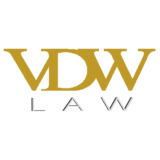Family-owned enterprises form the backbone of numerous economies, but face unique challenges in tax planning. These businesses often intermingle personal and corporate finances, leading to distinctive tax complexities. Understanding these nuances is critical to crafting an effective tax strategy.
Optimizing Tax Benefits
A critical strategy for family-owned businesses is to maximize available tax credits and deductions. This includes exploring deductions for business expenses and tax credits for employing family members, along with other sector-specific incentives. Keeping abreast of tax law changes is essential to ensure you’re making the most of these opportunities.
Estate and Succession Planning
Particularly crucial for family-owned businesses is the aspect of estate and succession planning. This involves structuring the business to minimize tax liabilities during ownership transitions. Employing tools such as trusts, gifting strategies, and buy-sell agreements can effectively manage transfer taxes and facilitate a seamless transition.
Seeking professional advice is invaluable. Tax laws are complex and constantly evolving, and expert guidance from professionals experienced in family-owned business taxation is crucial for compliance and optimization.
Investing in Retirement Plans and Managing Capital Gains
Investing in retirement plans serves a dual purpose – securing the future of family members and offering tax benefits. Contributions are often tax-deductible, and earnings grow tax-deferred. Similarly, managing capital gains is essential, especially when considering the sale of business assets or transferring ownership. Strategies for managing capital gains, such as using capital losses to offset gains and timing the sale of assets, can significantly influence tax liabilities.
Structuring the Business and Professional Advice
The choice of business entity significantly impacts tax obligations and benefits. Whether a sole proprietorship, partnership, LLC, or corporation, each comes with different tax considerations. Alongside this, seeking professional advice is invaluable. Tax laws are complex and constantly evolving, and expert guidance from professionals experienced in family-owned business taxation is crucial for compliance and optimization.

Importance of Accurate Record-Keeping
A fundamental aspect often overlooked is the importance of accurate and comprehensive record-keeping. Not only does it assist in claiming all entitled deductions, but it is also crucial during audits or tax reviews.
Conclusion
Effective tax planning is essential for the growth and sustainability of family-owned businesses. By understanding their unique challenges, leveraging credits and deductions, planning for succession and retirement, managing capital gains, choosing the right business structure, seeking professional advice, and maintaining accurate records, these businesses can successfully navigate the intricacies of tax planning. These strategies not only ensure compliance but also contribute to the long-term success and continuity of family-owned businesses.
Partnering with Van Der Wissel Law Firm for Expert Guidance
In navigating the complex landscape of tax planning for family-owned businesses, partnering with the Van Der Wissel Law Firm can be a game-changer. The firm, renowned for its expertise in business and tax law, offers tailored solutions to address the unique needs of family-owned enterprises. With a deep understanding of both the personal and business aspects of these entities, the Van Der Wissel Law Firm is well-equipped to provide strategic advice.
Their services include:
- Estate and Succession Planning: The firm excels in crafting estate and succession plans that minimize tax liabilities and ensure a smooth transition of ownership, safeguarding the business’s legacy.
- Optimizing Tax Credits and Deductions: The Van Der Wissel Law Firm stays abreast of the latest tax laws, ensuring clients benefit from all available tax-saving opportunities.
- Capital Gains and Retirement Planning: Their experts offer guidance on managing capital gains and leveraging retirement plans for tax efficiency, crucial for long-term financial health.
- Business Structuring: Depending on your business needs and goals, the firm advises on the most beneficial business structure, balancing tax implications with operational efficiency.
- Comprehensive Audit and Record-Keeping Support: The firm also assists in maintaining impeccable records, an invaluable asset during audits and tax reviews.
For more information and to explore how the Van Der Wissel Law Firm can assist your family-owned business with its tax planning needs, visit VDWlaw.ca.




One comment
Esta Reinger
September 25, 2023 at 9:35 am
Fantastic article on tax planning! The insights provided are not only informative but also practical. Clear explanations make complex tax concepts easy to grasp.
Comments are closed.